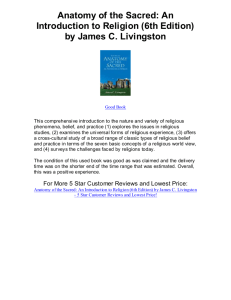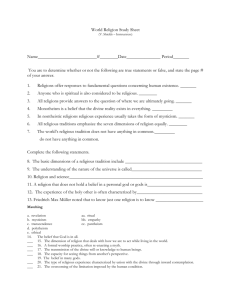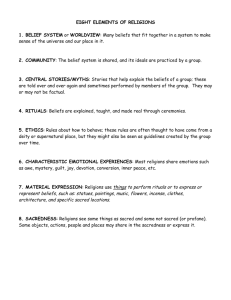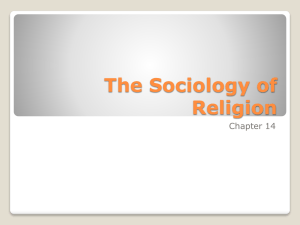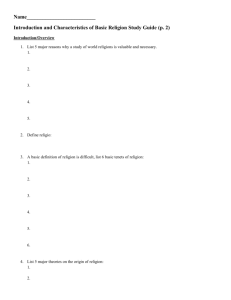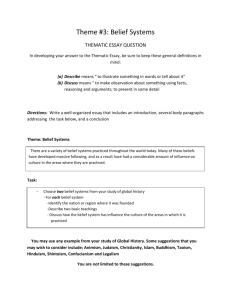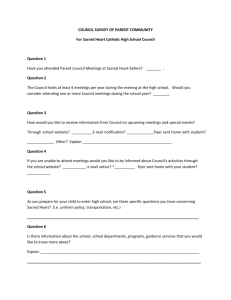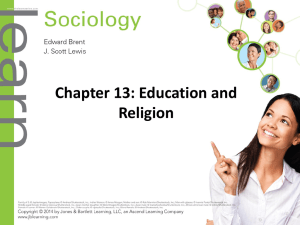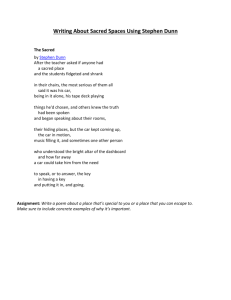CURRENT THEORETICAL PERSPECTIVES OF SOCIOLOGY
advertisement
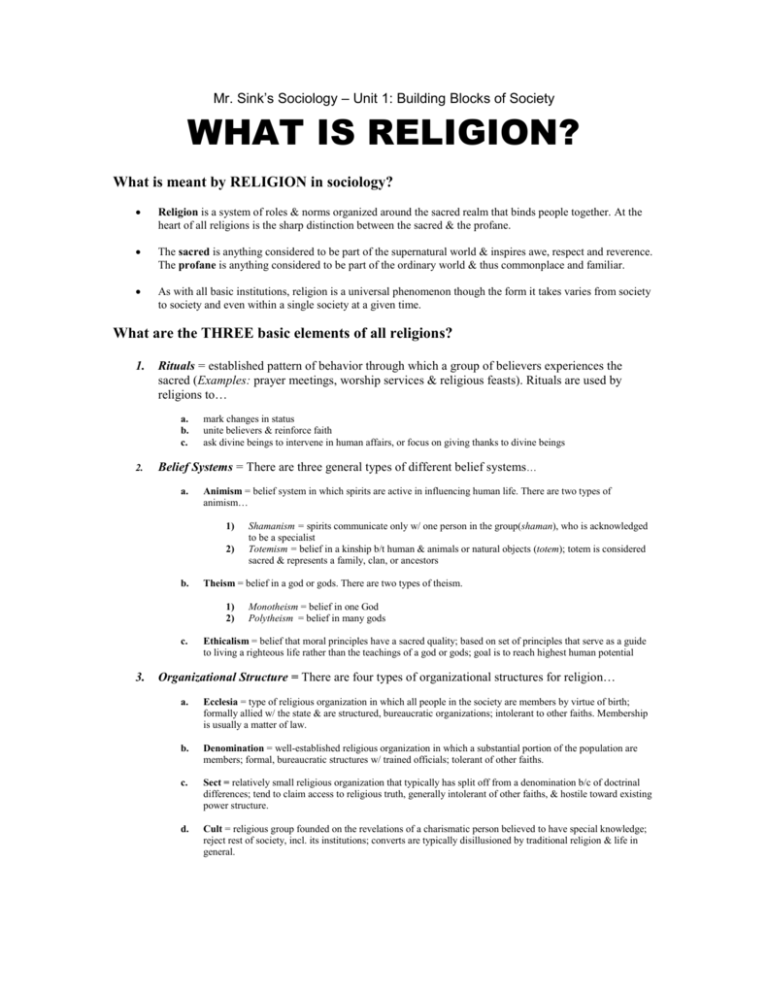
Mr. Sink’s Sociology – Unit 1: Building Blocks of Society WHAT IS RELIGION? What is meant by RELIGION in sociology? Religion is a system of roles & norms organized around the sacred realm that binds people together. At the heart of all religions is the sharp distinction between the sacred & the profane. The sacred is anything considered to be part of the supernatural world & inspires awe, respect and reverence. The profane is anything considered to be part of the ordinary world & thus commonplace and familiar. As with all basic institutions, religion is a universal phenomenon though the form it takes varies from society to society and even within a single society at a given time. What are the THREE basic elements of all religions? 1. Rituals = established pattern of behavior through which a group of believers experiences the sacred (Examples: prayer meetings, worship services & religious feasts). Rituals are used by religions to… a. b. c. 2. mark changes in status unite believers & reinforce faith ask divine beings to intervene in human affairs, or focus on giving thanks to divine beings Belief Systems = There are three general types of different belief systems… a. Animism = belief system in which spirits are active in influencing human life. There are two types of animism… 1) 2) b. Theism = belief in a god or gods. There are two types of theism. 1) 2) c. 3. Shamanism = spirits communicate only w/ one person in the group(shaman), who is acknowledged to be a specialist Totemism = belief in a kinship b/t human & animals or natural objects (totem); totem is considered sacred & represents a family, clan, or ancestors Monotheism = belief in one God Polytheism = belief in many gods Ethicalism = belief that moral principles have a sacred quality; based on set of principles that serve as a guide to living a righteous life rather than the teachings of a god or gods; goal is to reach highest human potential Organizational Structure = There are four types of organizational structures for religion… a. Ecclesia = type of religious organization in which all people in the society are members by virtue of birth; formally allied w/ the state & are structured, bureaucratic organizations; intolerant to other faiths. Membership is usually a matter of law. b. Denomination = well-established religious organization in which a substantial portion of the population are members; formal, bureaucratic structures w/ trained officials; tolerant of other faiths. c. Sect = relatively small religious organization that typically has split off from a denomination b/c of doctrinal differences; tend to claim access to religious truth, generally intolerant of other faiths, & hostile toward existing power structure. d. Cult = religious group founded on the revelations of a charismatic person believed to have special knowledge; reject rest of society, incl. its institutions; converts are typically disillusioned by traditional religion & life in general.
